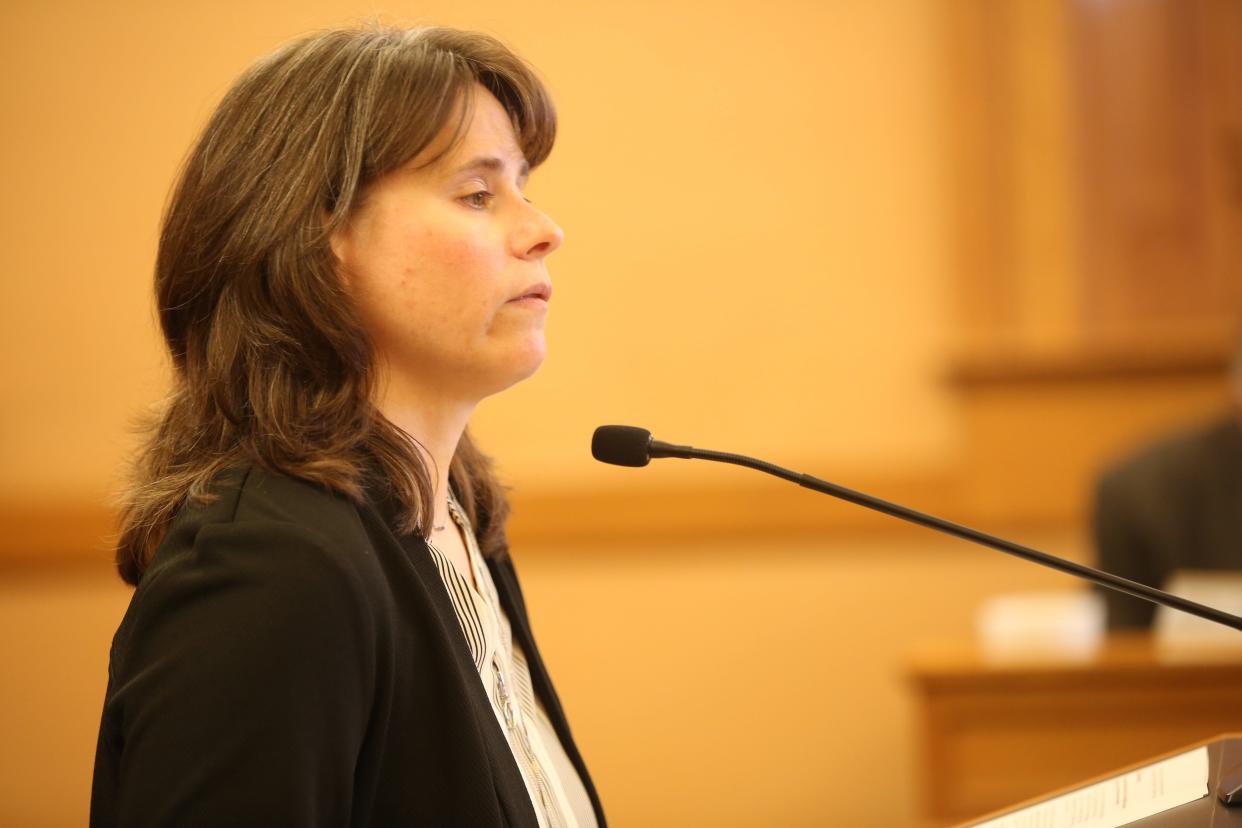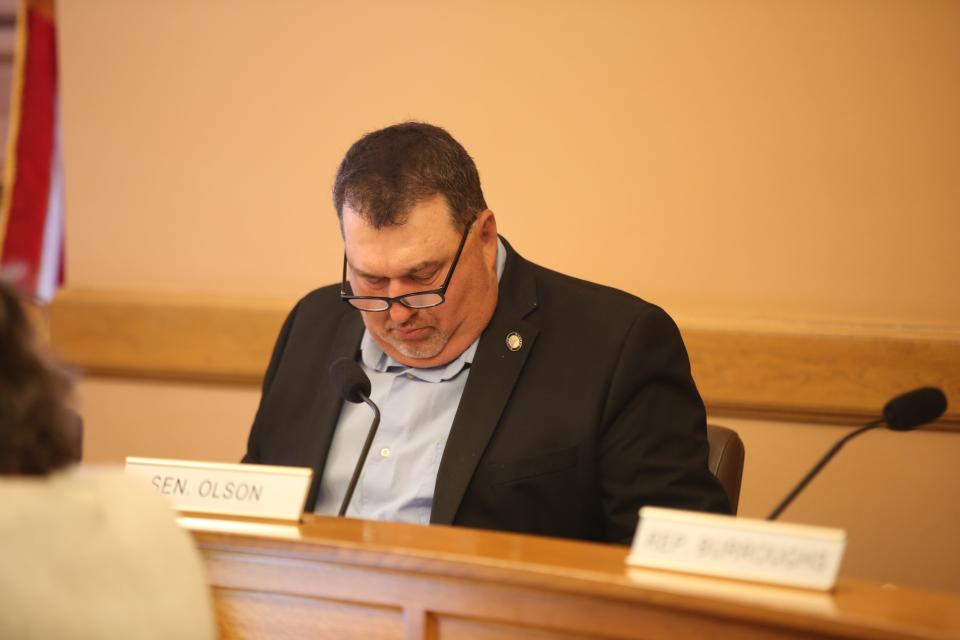Kansas lawmakers say new audit shows ‘epic fail’ in COVID-19 aid spending. Here's what to know

Hundreds of thousands of dollars of COVID-19 relief funds spent by state and local governments could have violated federal rules or was ill-advised, a report released Wednesday by the Legislature's nonpartisan auditing office showed.
The audit, which took into account funds spent under the CARES Act, comes as state officials are still grappling with how to spend millions in federal pandemic relief, with the process to dole out the money coming under fire over transparency concerns.
Of the $18 million in expenditures by county governments, nonprofits and businesses reviewed by the Division of Legislative Post Audit, officials flagged $1.1 million in spending as ill-advised, with an additional $264,000 considered wasteful or excessive.
And while 85% of funding was considered to be clearly allowable under federal guidelines, it was unclear whether $2.7 million in spending was acceptable. Another $48,000 was deemed to likely not be allowed.
Grocery store spending draws ire from legislators
Potentially problematic expenditures ranged from a recipient of a small business grant who conducted a festival to the purchase of electronic signs, sports equipment and office supplies by local governments.
In Bourbon County, officials gave a vendor $450,000 to start a grocery store in a part of Fort Scott considered to be a food desert. Despite concerns raised about its feasibility, the project was approved anyway — only to see the store close after a few months.
The revelation drew pointed criticism from legislators, with Rep. Sean Tarwater, R-Stilwell, terming it an "epic fail."
Jim Harris, chair of the Bourbon County Commission, wasn't in office when the decision was made to fund the grocery store.
But the store wound up closing, he said, after the store drew less interest than initially anticipated. The county ultimately sold the building to pay off the previous owner's debt and a restaurant now is on the premise.
"It was a nice concept. It just didn't work downtown," Harris said.
Kansas lawmakers want more oversight over ARPA funding

The Department of Administration said in its response that most of the projects could be considered allowable, though Secretary DeAngela Burns Wallace told lawmakers that she wasn't trying to defend the wisdom of ideas like the Fort Scott grocery store.
Still, legislators said they found the audit results to be alarming.
More: Gov. Laura Kelly, GOP challenger Derek Schmidt face off over COVID-19 pandemic response
"That's the problem with all this free money, we don't have a lot of controls on it," said Sen. Rob Olson, R-Olathe, chair of the Legislative Post Audit Committee. "You could use that $450,000 for housing or other things, a hospital, that are needed much more than that."
Kansas received roughly $34 billion in aid from the federal government over the five federal relief bills, though the majority of these funds were earmarked for specific uses.
Only $2.6 billion was considered discretionary, meaning the state had some flexibility in choosing where the money was spent.
For the CARES Act monies, a panel of legislators, agency heads and private sector representatives dictated where the funds went, sending $400 million to counties.
The remaining $604 million was divided among state agencies and outside groups for grants and spending on everything from childcare to supporting meat lockers.
Kansas counties sometimes felt rushed to decide how to use funding
Heidi Zimmerman, the auditor who handled the report, said part of the explanation for some of the questionable spending came from rules handed down by the federal government.
Counties routinely complained during the CARES Act process of a rushed timeframe for identifying needs and spending the funds, as well as confusing guidelines from Washington, D.C.
Moreover, Zimmerman said, the funds had to be spent quickly or counties would lose them to the state.
More: Kansas hits 9,000 deaths from COVID-19, including 13 children; flags won't be lowered this time
"Often in these cases, recipients may decide to spend money on something that is less defensible, rather than lose the money," Zimmerman said. "And this can result in wasteful and unnecessary spending."
For American Rescue Plan Act funding, a group of advisory committees approved recommendations to be considered by an executive committee comprised of Lt. Gov. David Toland, Republican legislators and businesspeople. The Legislature also spent roughly $1 billion in funding.
Burns Wallace said officials were set to reconvene in September to weigh what to do with the remaining $374 million in ARPA money.
"I think we need a lot more oversight over where those funds go and whether they go anywhere," said Sen. Mike Thompson, R-Shawnee. "Because this looks like a Christmas tree for some some people and there was no accountability whatsoever."
Andrew Bahl is a senior statehouse reporter for the Topeka Capital-Journal. He can be reached at abahl@gannett.com or by phone at 443-979-6100.
This article originally appeared on Topeka Capital-Journal: Kansas COVID-19 CARES Act spending included questionable items

